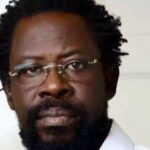We all fall in love with proverbs and sayings of the wise and consider them building blocks for personal and national development. Very often, these popular sayings take a life of their own and are expected to inspire us through life. Over time, they become almost cast in stone and become absolutes in themselves.
For example, I firmly believe that the saying – which over time has finally come to be known as the Golden rule – was unquestionable and that everyone agreed to its meaning. To us all, the golden rule simply is, ‘Do unto others as you expect them to do unto you.’ Later, I heard someone say that in reality, the golden rule means, ‘Those who have the gold will rule!’
For the purpose of this tribute, I have had to reflect and question another very popular saying – ‘A tree cannot make a forest.’ It all seemed so clear to me that indeed, a tree cannot make a forest. In real life, this proverb is supposed to remind us that an individual’s impact is measured only in relation to the contribution of others. In paying tribute to Aare Afe Babalola, I think I have come across a man who puts this proverb severely to the test. Aare Babalola’s contributions to national life puts paid to the efficacy of this proverb. Aare Afe Babalola is in almost every sense of the word, a tree that has become a huge forest, both metaphorically and in reality, especially given the huge farm that he has created in his eponymous university, in Ado Ekiti.
I first met and got to know him a bit closely in 2005 during the National Political Reform Conference (NPRC) of which I was secretary. With almost 400 distinguished Nigerians, he stood out in more ways than one. However, I really got to know him a bit closer when the NPRC broke into committees. Given the caliber of men and women who were members of the conference, we had had serious problems trying to get chairmen for the committees because of the status of the members. Finally, we resolved that the committees should choose their own chairmen when they convened.
I had the duty of going around the 9 committees, listening to their debates, answering questions and coordinating their demands and so on. This was how I got a bit close to Aare Babalola. The committee on the Constitution was considered the most important of the committees. If my memory serves me right, I think there were 17 Senior Advocates of Nigeria as members of that committee. By this time, the maneuver and intrigues over the Third Term project were in full swing. We had series of side conversations and developed mutual respect for one another.
The popular lore I first heard was that Aare Babalola never went to a formal school. Later, the truth came out. He himself proudly set the records straight – he had only finished Standard Six! Common Standard Six! At that level, you would expect that Aare Babalola should have been content with auditioning for a role as a side kick in the ‘Village Headmaster’ television series, content to stand behind the Kabiyesi. Or, he could have stood side by side with Gringory and Clarius in the ‘Masqurade’ (Recall a scene in the ‘Masquarade’ in which Gringory was unable to read a letter for Chief Zebrudaya during the day, on grounds that he was attending night school and therefore could only read at night).
Short of a miracle, how could a common Standard Six by manage to bypass being an artisan in a carpentry workshop in Ekiti to totally alter the entire educational landscape of the state? Even if he had the temerity to come to Lagos after his Standard Six, could he not have been content with being a bus conductor in Oshodi where he could have become a secretary of the association of motor touts? Or, over time, could he have risen to become a vice chairman of the local branch of the NURTW? To fail to contemplate these questions is to fail to appreciate the shock and awe of Aare Babalola’s seismic rise to the pinnacle of Law, Industry and Philanthropy.
How could a common Standard Six boy read his way through Law, rise to become one to the most recognisable faces of the legal profession both in his own country, Africa and beyond? How could a common Standard Six boy become a recipient of almost ten honorary doctorate degrees in Nigeria, Africa, Europe and America? Strangely, like Caesar, more than twice, he had been offered the crown of serving his nation as a minister, a chance to access the loot and more than twice he turned it down.
To be sure, there are many lessons for us to learn from the life and times of Aare Babalola. The lessons include co-operating with the grace of God, using 99% perspiration and a co-operating with the 1% of inspiration, discipline, sheer grit and tenacity. I watched as a common Standard Six boy presided over the affairs of the prestigious University of Lagos as Chairman of the Governing Council, clearly exhibiting his impatience with the poor quality of education. He drew inspiration from there to move the mountain and set up his own university.
In 2011, when my friend, Dr. Kayode Fayemi invited me to speak at his first anniversary as governor of Ekiti State, I made a note and decided that I would visit the university in the course of my time there. I told my host, my brother and friend, Bishop Felix Ajakaiye that I really had to go to see Afe Babalola University. We made the brief trip in a haste because I had a plane to catch in Akure. I wanted to just drive round and see the buildings, but someone recognised me. I casually asked if Aare was around and it turned out we were just beside his office.
I decided to stop for a quick hello to him. He was so excited to see me and despite my time constraint, he called out and introduced me to most of the senior staff who were with him. He asked if I could address the students, no matter how briefly but I pleaded with him and we left. I was quite impressed by what I saw and wondered how an individual could achieve so much. The best was still to come.
In 2015, to my greatest surprise, I received a letter from Aare Babalola informing me that the university had offered to confer an Hononary Doctorate Degree on me and could I also kindly deliver a Convocation Lecture too? I was to share this honour with two distinguished Nigerians, the Alafin of Oyo, Lamidi Adeyemi III, and my good friend, Professor Attahiru Jega.
The event was colourful. It included a tour of the entire university compound and some of the laboratories. It was something to behold. The evening convocation party had the legend, King Sunny Ade on stage. We were asked to go to the dance floor but since neither Professor Jega nor his wife seemed equipped with dancing shoes, I decided to simply wriggle on my seat.
Today, the University has become a landmark one, raising the bar for university education beyond the shores of Nigeria, winning scores of national and international awards. It has elevated university education in Nigeria. So, when Aare Babalola called to inform me that he had been awarded the Awolowo Leadership Prize for 2018, I nodded and smiled in approval. He deserves this and even more. Chief Awolowo would be proud of what Aare Babalola has accomplished. He has defied the odds and demonstrated that indeed, a tree can make a forest. Today is Ash Wednesday and I therefore cannot join you. Accept my congratulations and prepare for more accolades, Aare.

 Join Daily Trust WhatsApp Community For Quick Access To News and Happenings Around You.
Join Daily Trust WhatsApp Community For Quick Access To News and Happenings Around You.

